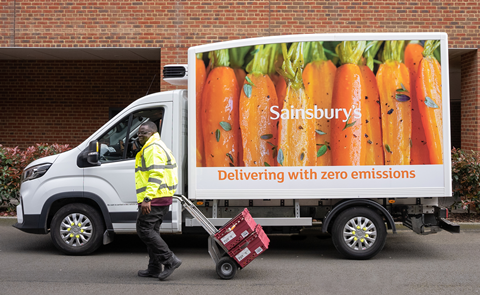
The government is pushing ahead with plans to allow category B (car) licence holders to operate heavier vans if they are fitted with alternative fuel systems.
A DfT consultation last autumn proposed that standard licence holders be allowed to drive vans weighing up to 4.25 tonnes if they are powered by electricity, natural gas, LPG or hydrogen.
The current weight limit is 3.5 tonnes, but as alternative fuel technology can weigh more than a conventional vehicle, operators are left with a payload disadvantage for choosing cleaner fuels.
In addition, vehicles weighing more than 3.5 tonnes would also fall into the regulatory O-licensing regime.
The government is seeking to remove these barriers to encourage uptake of cleaner vans as part of its wider agenda to improve UK air quality.
Following a positive response to the consultation and interest from operators in taking advantage of any extra weight allowance, the DfT will now seek permission from the European Commission for the changes.
It will apply for a temporary derogation, which is subject to a five-year trial period, for raising the permitted weight to 4,250kg. Other EU member states, including France and Germany, have already been granted similar permission for electric vehicles.
A DfT statement read: “It is intended this approach will increase access to cleaner alternatively-fuelled vehicles for operators, without incurring a commercial penalty through constrained payload.
“We are keen to support the LCV sector in increasing its access to cleaner alternatives. The situation will be monitored, including the derogation's impact on air quality, as well as any positive developments in vehicle technologies, including lighter alternatively-fuelled powertrains.”
No timescale has been released yet, but the DfT said it will continue to work with industry throughout the next stage of the process.
The FTA has welcomed the government's decision and believes the licensing change will encourage more firms to consider alternativelly-fuelled vehicles.
FTA environment policy manager Becki Kite said: "This will make it cheaper and easier for firms to include alternatively-powered vehicles in their fleets. It is an excellent example of how the government can use regulatory adjustments to help our industry implement more energy-efficient working practices."
She added: "The heavier weights of these vehicles mean they have often been inaccessible for van operators who do not have an operator licence or the appropriately trained drivers. For firms with the appropriate operator licence, the additional regulation still meant extra cost in implementing appropriate compliance policies and recruiting additional drivers. Now they will be able to absorb these vehicles easily into their current working practices."
Operators and manufacturers were supportive of the measures when the consultation was launched last year.
Ocado head of fleet Stuart Skingsley said: “At Ocado, we are keen to incorporate the latest low-emission technologies in our vehicle fleet, but we have been unable to do so due to the extra weight of the technology and category B licence restrictions.
“This vital derogation would allow us to field the latest alternatively fuelled vans, reducing harmful emissions and improving the UK’s air quality.”
Iveco alternative fuels director Martin Flach said: “As a key alternative fuels vehicle manufacturer that believes in sustainable transport, Iveco has been campaigning on this for several years, so we’re delighted with the proposal that has been made.
“If the plan is accepted, we believe it would boost the uptake of ultra-low emission vehicles and improve air quality. The vehicles are available, we just need the government to ensure businesses are being given the opportunity to make the most of them.”
The government also announced this week a discount in HGV Road Levy fees for operators using cleaner lorries.














